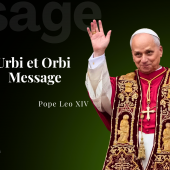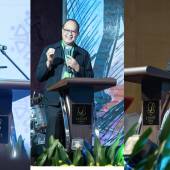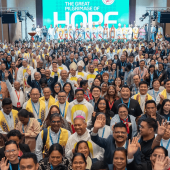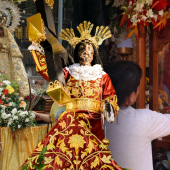Wheat and Weeds: Good and Evil Sowers
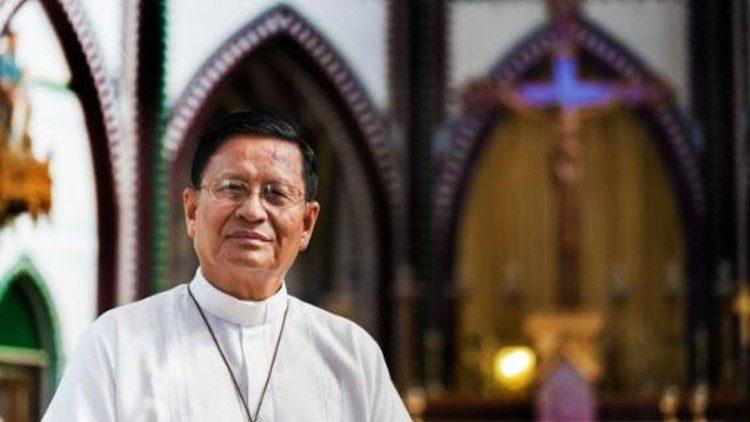
Cardinal Charles Maung Bo of Yangon
Dear Brothers and Sisters in Christ,
Grace and peace be with you all. Our Hearts and Minds continue to grapple with the challenge of COVID. May the hand of God continue to reach out to all those affected.
Let this planet be healed.
Today, the readings talk about the conflict between the Good and Evil, the wheat and the weed in the same field. Two types of sowers: the Son of Man who sows seeds that bring forth the sons and daughters of God’s Kingdom; the next sower is the devil who sows the toxic seeds and brings forth the sons and daughters of the evil kingdom.
The parable of Good Sower and the Evil One fits the story of Myanmar.
Myanmar today commemorates Martyrs’ Day, when future leaders were trying to sow the seeds of democracy, equal rights for all, the evil sowers schemed together and sowed hatred and sorrow to the nation, by mercilessly shooting down the national leaders.
Not only the leaders died that day, the dream of a peaceful and prosperous Myanmar died that day. The weed of killing and bleeding continues till today.
The seeds of hatred and violence they sowed that day continue to bleed the nation, perpetuating chronic wars, jeopardizing the lives of millions, as refugees, IDPs, and migrant laborers.
On this grim day of sadness, we offer this nation to the protection of the Lord and pray that those who continue to sow seeds of hatred and disunity be “collected in bundles and consigned to the fire of history” as the master in the parable did.
Myanmar was a golden land, a land where God sowed prosperity. In the 60s, this country was richest in the whole of Southeast Asia. Japan was poorer, Singapore was poorer, Korea was poorer, Malaysia was poorer than Myanmar. Then some “evil people” like in the parable, came at night and sowed the seeds of “poverty” and it has grown into a forest. Now we are one of the poorest countries in Southeast Asia.
The founding fathers, including General Aung San did not shed their blood to make this land a showcase for poverty. The blood of the martyrs should have been the seed of peace and harmony. They gave themselves as seeds of wheat, seeds of prosperity, seeds of peace to this land. Then came the evil one at night and sowed the seeds of poverty, seeds of conflict. There are more weeds than the wheat.
On this Martyrs’ Day we pray to the Lord of Harvest. Lord cut away all the weeds sowed decades ago and make our country the dream come true of our martyrs. Let the forthcoming Panglong Peace conference close all conflicts. Let us sow the seed of peace and prosperity and let there be a new Myanmar of hope and love.
Moving away from the national scene, we contemplate the deeper meaning of this parable for our lives, our family, and for our Christian life
This parable has deeper spiritual meaning for each one of us.
Take the case of Cain and Abel. In God’s garden of Eden there were just two seeds of the first parents. Abel lived according to God’s plan, humble and generous. He was the wheat. His brother Cain was the evil seed, trapped in insatiable hatred of his own brother, he committed the first fratricide. Like the master in the parable, God did not destroy Cain because he lacked the knowledge about good deeds and evil deeds.
Like Cain, we all have big challenges. Our life is like the land in the parable. We are the sowers but we have confusion in identifying which is wheat and which is weed. The good thoughts and good actions are the seeds of wheat we are called upon to sow. But in our fragile fallen human nature, we choose the evil seed of self destruction, choosing sin over the virtue. We choose the death through sin and refuse to choose life.
The book of Deuteronomy brings up this challenge to each one of us:
I call heaven and earth as witnesses against you today that I have set before you life and death, blessing and cursing. So choose life, so that you and your descendants may live, and that you may love the LORD your God, obey Him, and hold fast to Him. For He is your life, and He will prolong your life.
Every minute, we are faced with the challenge of discerning what is our long term good versus the short term attractions that destroy us. Life is about choices. The choices we make are like the seeds spoken today in the parable. Either we sow the good in us through good intention, hard work, and value based life, or we chart out a destructive course through choosing gratification of the flesh. Like weeds they grow in our lives, over come the good we should be doing. Addictions and self-dilution become the life and end in disaster.
St. Paul, too, grappled with this problem. For him the good seed is the Law of the Spirit, which regularly challenges us to lead a spirit filled life and “law of flesh” that lives from one indulgence to the next.
In his famous chapter on the conflict between the law of Spirit and the law of Flesh, St Paul moans:
For what I am doing, I do not understand; for I am not practicing what I would like to do, but I am doing the very thing I hate. I find the principle that evil is present in me, the one who wants to do good. For I joyfully concur with the law of God in the inner man, but I see a different law in the members of my body, waging war against the law of my mind and making me a prisoner of the law of sin which is in my members. Wretched man that I am! ( Romans 7 :14-24)
Thankfully for St Paul, he realizes this conflict is only solved with the grace of Jesus Christ.
The life choices make our life purposeful. Every minute needs a choice to be fully human. Those of us who do not make good choices are like people with body but no spirit. Like a dead body. The American millionaire Jeff Bezos once said that we should not be worried about gifts or no gifts in life. Our life is enriched by the choices we make. Many start well but end up miserably and become a mobile corpse as the book of Revelation warns:
I know your work; that you have the reputation of being alive, but you are dead. Be watchful and strengthen what is left which is going die, for I have not found your works complete in the sight of my God. (Book of Revelation: 3: 2-3).
To be awake. That is the whole process of life. To be aware of one’s life every minute is real living. Eastern religions talk about “mindfulness” that leads to meaningful choices in life. Without discerned choices, life is dead. We have indicated in the past that those who refuse to make choices “though looking as if living but are dead by the age of thirty and get buried after the age of seventy or eighty.”
Life determined by outside forces ends up meaningless.
Every Christian family faces two kinds of seeds of Wheat: that is the seed laid down by the Spirit and the seeds of Weed sowed by the Enemy.
In a glorious passage of Galatians 5, St Paul enumerates these seeds:
Seeds of wheat sowed by the Spirit:
Love, joy, peace, patience, kindness, goodness, faithfulness, gentleness, and self-control. So I say, live by the Spirit, and you will not gratify the desires of the sinful nature.
Then he goes to enumerate the Seeds of Weeds sowed by the enemy of human nature:
The acts of the sinful nature are obvious: sexual immorality, impurity and debauchery; idolatry and witchcraft; hatred, discord, jealousy, fits of rage, selfish ambition, dissensions, factions and envy; drunkenness, orgies, and the like. I warn you, as I did before, that those who live like this will not inherit the kingdom of God. Galatians 5:16-21
Yes. The greatest choice we can make during these dark seasons of COVID is to live by the seeds of Spirit. COVID itself proves to be the “seed planted by the enemy” all over the world, killing thousands and infecting millions.
We pray that the Lord of harvest may save the wheat and destroy the weed of COVID.
The first two readings give us the method of choosing the seeds of the Spirit. The first reading, the book of Wisdom, calls us to repent our sins, be aware of our fragile nature where the evil one plants weeds. Our weakness is acknowledged by Paul in the second reading through the letter to Romans where he says, it is the Spirit himself who prays for us with “inexpressible groaning.”
Coming back to the message of the Gospel and Martyrs’ Day, we pray earnestly for peace in this country.
Not only the Martyrs shed their blood, but every day for the last seventy two years, tears and blood flows in this land.
God has chosen this land as his own since he has planted so much wealth above the ground and below the ground for his dear people of Myanmar. Not only the treasures are so great in this land, but the people are so special, coming from eight major tribes and 135 sub-tribes. Every visitor is mesmerized by the grace and culture of our people. This country has a long cherished spiritual tradition. So much of good seed is sowed on this golden land.
But power, conflict and economic and environmental looting has left this country in sorrows.
Democracy is the seed that is growing slowly, freedoms and rights are growing slowly. But our martyr’s spirit will rest in peace only when every man and woman of this country lives in basic dignity, safety and security, and enjoying all the freedom.
The time has come to identify the weeds and uproot them and burn them in the furnace of history. Then the words of Jesus uttered as he ended explaining the parable to his disciples will come true:
Then the righteous will shine like the sun in the kingdom of their Father.
Whoever has the ears to hear ought to hear. (Mt 13:43)
Homily delivered by Cardinal Charles Maung Bo of Yangon on Martyrs Day in Myanmar, July 19, and the 16th Sunday of the Ordinary Time
Radio Veritas Asia (RVA), a media platform of the Catholic Church, aims to share Christ. RVA started in 1969 as a continental Catholic radio station to serve Asian countries in their respective local language, thus earning the tag “the Voice of Asian Christianity.” Responding to the emerging context, RVA embraced media platforms to connect with the global Asian audience via its 21 language websites and various social media platforms.









